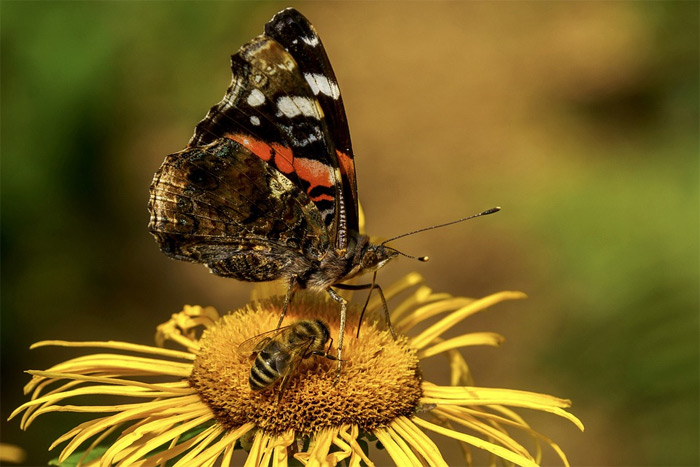(Photo above from Pixabay.com)
A round-up of environmental news that’s been overlooked recently.
By Colin Serjent
Bees scent wrong way by pollution
Air pollution from traffic and industry confuses bees and butterflies by changing the scent from flowers and crops. The phenomenon reduces the number of pollinators by 70% and visits to plants by 90%, University of Reading scientists discovered.
Whaling to end after drop in meat demand
Iceland has announced it will stop hunting whales by 2024 after a decline in demand for their meat.
Only one whale, a minke in 2021, has been killed in the past three years as licence holders have been put off by increased operational costs and the effects of the pandemic.
Plants flowering a month early
Climate change is having such a profound effect on nature that it is causing plants in the UK to flower a month earlier on average, risking the collapse of some species, a study suggests.
Researchers at Cambridge University analysed more than 400,000 records of 406 plants species dating back to the 18th century.
They observed that the average first flowering date from 1987 to 2019 was a month earlier than the average first flowering date from 1753 to 1986 – a period that coincides with a global warming caused by human activity.
Would you believe it? 73,000 types of tree
There are 73,000 tree species on Earth, with 9,200 of them yet to be discovered , research shows.
The tally is 14% higher than was thought, say experts who mapped known types and estimated how many more there are using methods pioneered by World War decoder Alan Turing.
‘Extensive knowledge of tree richness and diversity is key to preserving the stability and functioning of ecosystems’, said Roberto Cazzolla Gatti, of the University of Bologna.
Dog fouling kills cows
Dog walkers have been warned about the dangers of not cleaning up after their pets by a farmer who lost half of his calves because they ate grass contaminated with dog mess.
He said he turned out 38 cattle in spring last year. 18 of the cows were later found to have lost their calves and that testing showed they had been contaminated with neosperosis, a disease caused by a bovine parasite found in dog excrement.
CO2 could be cut by 68% if world went vegan
If the whole world went vegan global carbon dioxide emissions would drop by 68%.
Researchers said a switch to plant-only animal substitutes would save 25 billion tons of CO2 emissions a year, primarily by reducing methane emissions from livestock and by reducing deforestation for grazing and planting new trees.
Scale of iceberg melt revealed
The giant A68A Antarctic iceberg, known as a megaberg, dumped 152 billion tonnes of water into the ocean as it melted over a three-month period in 2020-21, scientists have found.
The amount is equivalent to 20 times the amount of water in Loch Ness.
Researchers used satellite measurements to chart the iceberg’s area and thickness throughout its life cycle, ending as it melted near the island of South Georgia.
